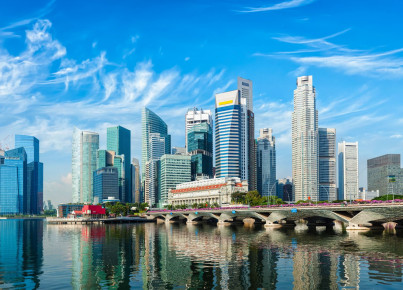The Southeast Asian bloc continues to work to chart its path to a sustainable digital future through bold projects and technological advancements
Articolo di Walter Minutella
In this modern era, technology is playing an increasingly essential role for all globally relevant figures, playing a significant part in various areas, and is crucial for the economic development of modern industries as well as their impact on global competition, improving as well as the quality of life of individuals.
With the increasingly interconnected landscape that characterizes today's world, ASAN countries are adapting to the technological revolution encountering multiple obstacles, including the need to deal with ever-increasing digitalisation, to promote the training of digital skills and to guarantee a reliable connectivity. Within this specific framework, ASEAN has continuously worked to chart its path towards a sustainable digital future, through bold projects and technological advancements.
COVID-19 has certainly made an essential contribution in accelerating the process of social digitalisation, demonstrating the usefulness of IT skills and the importance of a suitable learning ecosystem. In an effort to improve the technical skills of its citizens, the ASEAN Action Plan commits to making digital technologies accessible across all sectors.
A clear example of this progress is the ASEAN Smart Cities Network (ASCN) project which was launched in 2018. The goal of this initiative is to foster synergy between ASEAN cities through the use of modern technologies to address challenges shared. ASCN's priority is the promotion of intelligent mobility through the use of electric vehicles, as well as the conscious use of renewable energy resources to minimize negative effects on the environment.
At the periodic meeting of the ASCN, we dedicate ourselves to diligently examining these issues and emphasizing firm commitment to the advancement of the project. The Indonesian Minister of Internal Affairs during his participation in the sixth ASCN meeting held in Bali recently, emphasized the importance of continuing to implement Smart Cities to address the challenges related to urbanization and development in tune with global changes, and the need to build a solid foundation to face the era of industry 4.0.
During the meeting, Indonesia was praised for its commitment to the project and three fundamental points were highlighted to improve the results of the activities promoted by ASCN: knowledge sharing, cooperation in urban planning and the promotion of partnerships . In addition to this, the topic of including additional actors in the project to expand the ASCN membership was addressed.
Another significant project is the Digitalization Initiative which involves close collaboration between ASEAN countries in order to implement common policies aimed at the digital transformation of the region. Member States are working to promote the spread of new technologies such as AI, IoT (Internet of Things) and blockchain which have already achieved widespread adoption on a global scale. In order to implement this, ASEAN fosters synergy between the public and private sectors, is committed to developing the digital skills of the workforce and is active in promoting technological innovation with equitable access to all citizens. This project aims to decrease the digital divide that occurs between various geographical areas within ASEAN, as well as foster the inclusion of digital technologies across the entire community.
The “Master Plan on ASEAN Connectivity 2025” occupies a central position in these recent innovations. This project aims to enhance infrastructure connectivity in the region through improvements to transport, energy and communications networks. The main focus of the project concerns the enhancement of digital connectivity, with particular attention to the development of digitally advanced infrastructures such as fast broadband networks and integrated technological platforms. The goal is to stimulate integration in the region to foster sustainable economic growth.
In the context of the development of cutting-edge digital infrastructure, the recent extension of the relationship between ASEAN and the Chinese technology giant Huawei should be highlighted. This relationship is based on a strong mutual commitment to promoting sustainable technological development in the area.
To highlight youth talent, the ASEAN Foundation has worked together with Huawei in programs such as ASEAN Seeds for the Future, which aims to build an inclusive digital ecosystem, focusing on developing local ICT talent and promoting participation in the digital society. The renewal of the contract is a clear testimony of ASEAN's commitment to sustainability, especially regarding the growth of next-generation networks. The main feature of the cooperation with Huawei lies in pursuing sustainable digital growth, paying attention to its impacts on both an environmental and social level.
It is clear that ASEAN, on an international level, is making its way in the field of technological innovation, becoming an important protagonist. Today's landscape is characterized by ambitious projects, international collaborations and efforts to develop digital skills.
Although it concerns only a small fragment of this vast reality, the Huawei affair highlights the importance of considering global events in the context of regional initiatives to fully understand ASEAN's role and impact in the digital age.






